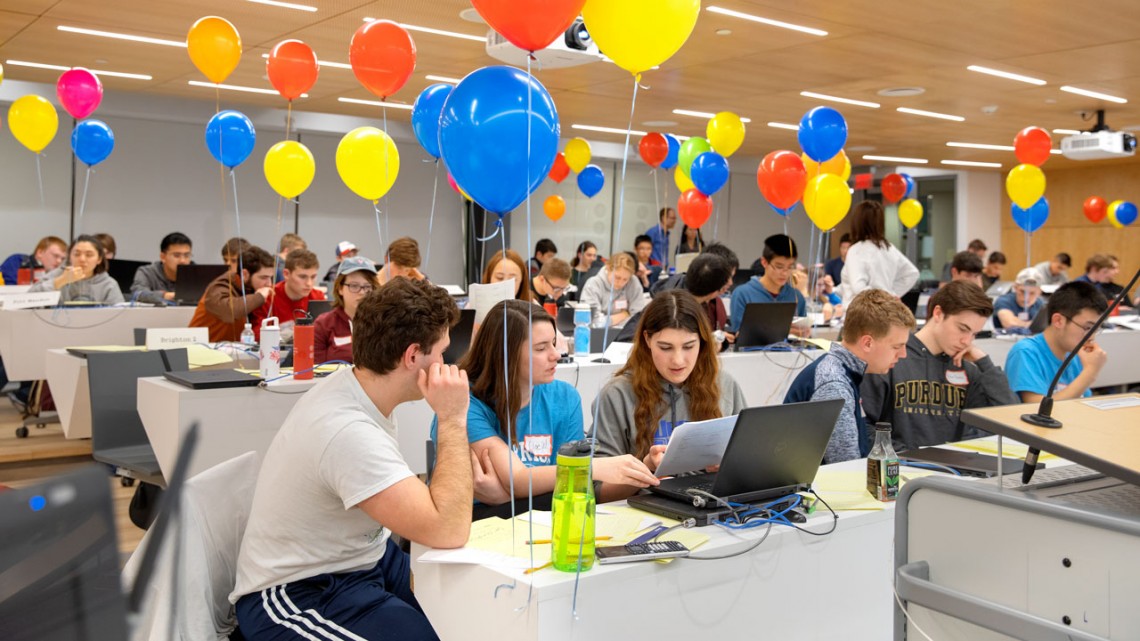
High school students at Cornell’s Ithaca campus competed simultaneously with students at Cornell Tech at the annual High School Programming Contest.
Cornell hosts largest-ever High School Programming Contest
By Melanie Lefkowitz
After traveling from suburban Rochester to Cornell for its first girls’ computer programming contest in February, Alessandra Visca felt more confident returning for the general coding competition April 5.
“I wanted to see how I would do against all the guys,” joked Visca, a junior at Webster Schroeder High School. She was one of 182 students to compete in Cornell’s annual High School Programming Contest, held simultaneously at Cornell Tech and in Rhodes Hall on the Ithaca campus.
“It’s growing every year by a pretty good percentage,” said Robbert van Renesse, computer science research professor, who coordinates the contest. At Cornell Tech, twice as many girls competed as last year.
Teams of three students attempted an array of easy, hard and medium programming challenges, earning a balloon for each problem solved. Competitors came from schools in New York City and central New York and as far away as Pennsburg, Pennsylvania and Southborough, Massachusetts.
The winning team, which solved seven problems, came from Princeton High School in Princeton, New Jersey, competing at Cornell Tech. A team from St. Mark’s School in Southborough, Massachusetts, took second place with five problems solved, and an Ithaca High School team placed third, solving five problems but with a higher penalty than the St. Mark’s team.
In New York City, Wendy Ju, assistant professor of information science at the Jacobs Technion-Cornell Institute at Cornell Tech, gave a talk about human-robot interaction and the importance of understanding people when designing technology. In Ithaca, Greg Morrisett, dean of Computing and Information Science, spoke to the competitors, encouraging them to pursue computer science.
“We need computer scientists desperately,” said Morrisett, citing U.S. Bureau of Labor statistics showing that 70 percent of STEM jobs created in the next 10 years are expected be in computer and information science.
Computer science is not only potentially lucrative, it’s exciting, Morrisett said, with plenty of discoveries yet to be made.
“One of the things I love about computer science is, unlike established fields like mathematics and physics, it hasn’t been around that long,” he said. “So to get to that frontier and push is something that’s achievable by mere mortals like me. So I encourage you to get in and push those frontiers, too.”
Students who competed said they enjoy programming because it teaches them how computers actually work, and presents them with interesting problem-solving challenges.
“It’s so open-ended,” said Jude Kukla, a junior at Mendon High School in Pittsford, New York. “You can go through all the motions in your head, and then the computer will do exactly what you’re thinking.”
Media Contact
Get Cornell news delivered right to your inbox.
Subscribe